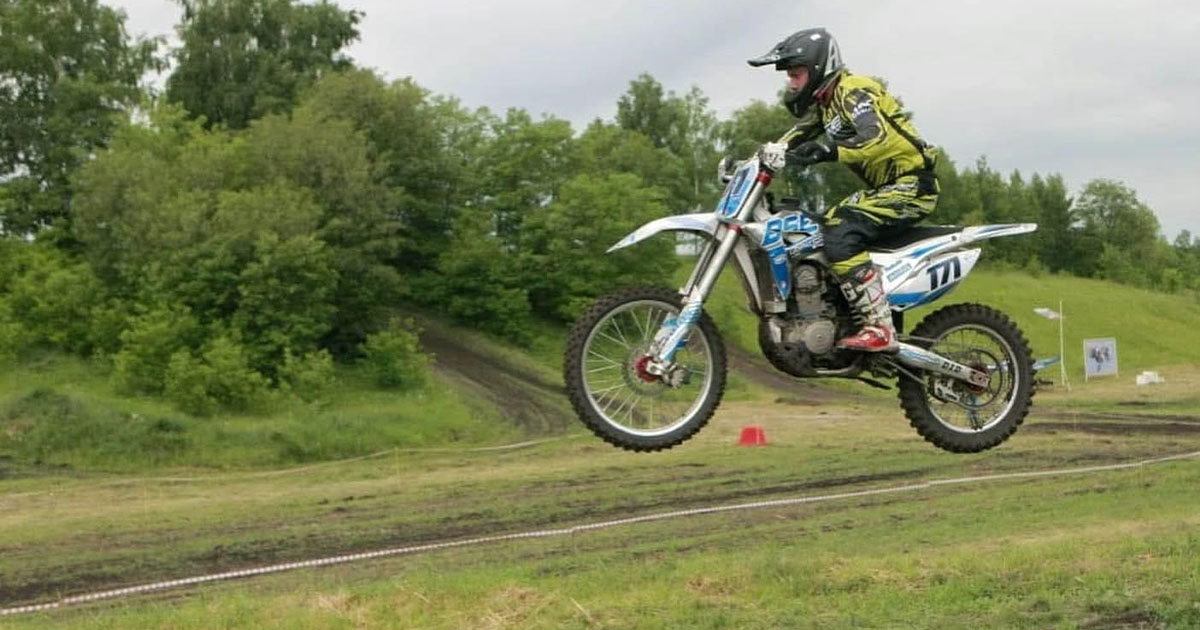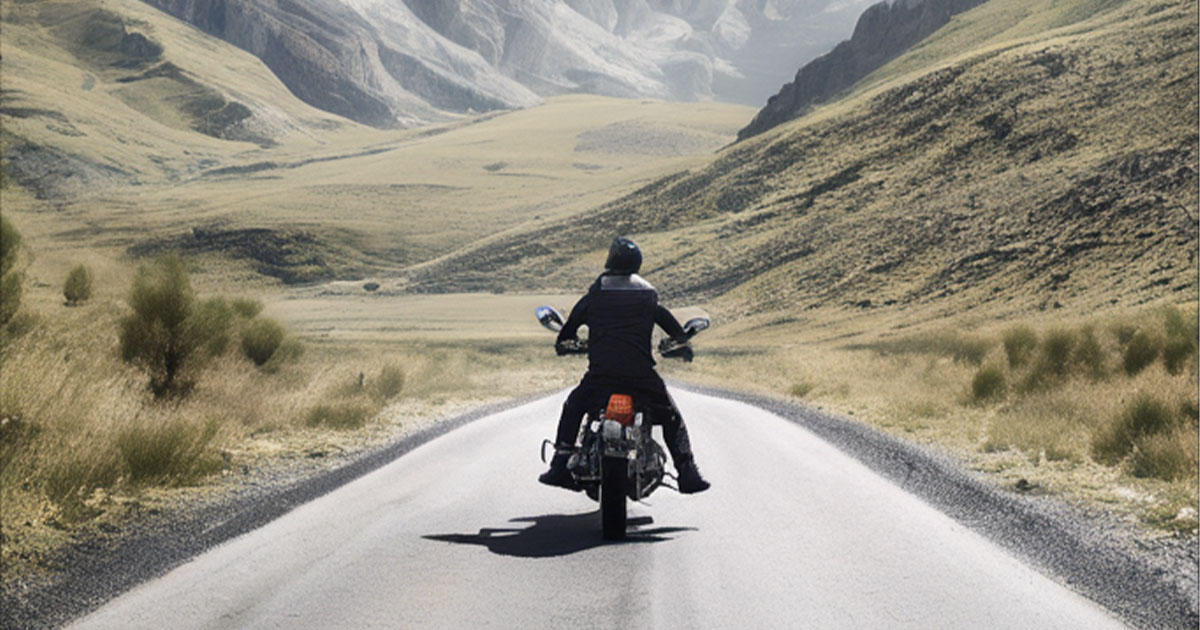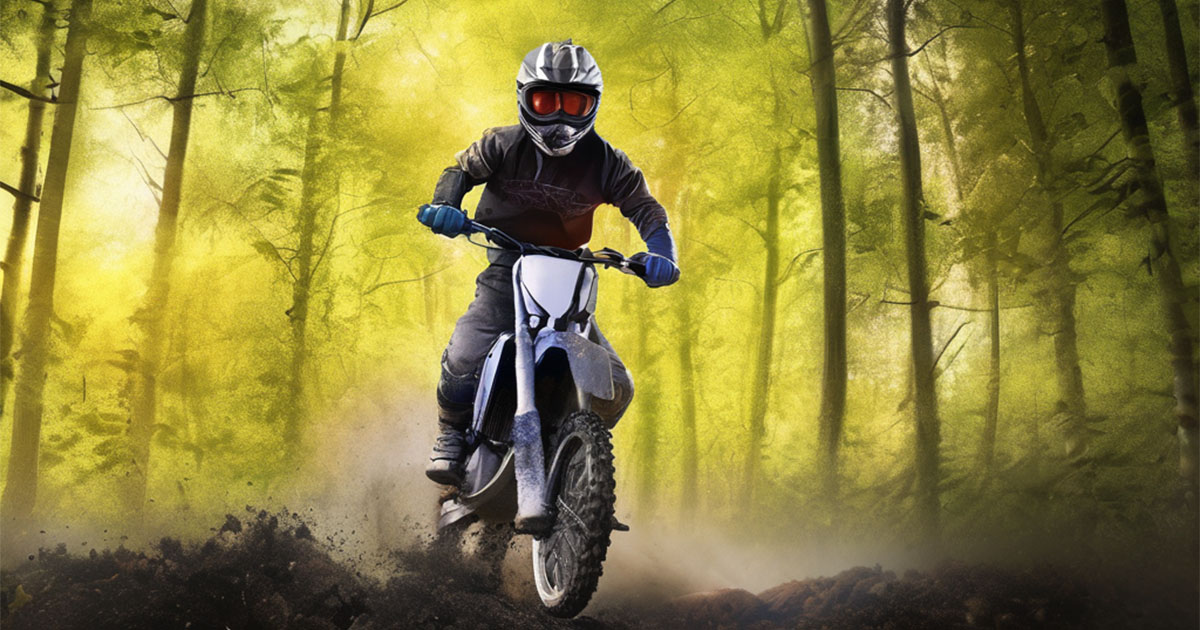Jumping into the exciting world of dirt biking usually implies the thrill of participating in off-road experiences. However, what individuals tend to overlook is the importance of complying with legal requirements, including those connected to licensing.
Many people often assume that engaging in off-road experiences renders the corresponding requirements and licensing realities obsolete. As it will be illustrated below, such a perspective is inaccurate, and understanding, as well as fulfilling, relevant licensing requirements is pivotal for both maintaining the law and ensuring one’s safety and respect within the riding community.
In this article, we will focus on “Do you need a motorcycle license for a dirt bike” and other important information many people overlook!
Table of Contents
ToggleUnderstanding Dirt Bike Classification
First and foremost, the classification of dirt bikes must be comprehended, as it is the primary constituent of the regulatory framework. A dirt bike is a motorbike that is designed mainly for off-road use.
It is classified as being dependent on the displacement of the engine, the weight of the bike, and what it is primarily used for. As long as these classifications are known, the licensing and registration requirements can be easily defined. Equally important is the fact the safety standards and the rules about the bike’s effect on the environment depend on the classification as well.
When all these aspects are thoroughly understood, the riders can make an educated guess regarding the legal state of affairs and effectiveness of their bike. This way, they can be sure that irrespective of whether they use it for casual off-reading the official competition, or an occasional on-road ride, the dirt bike is deemed roadworthy and compliant with the law.
License Requirements for Different Types of Dirt Bikes
Many people ask the same question: Do you need a license for a dirt bike? There are several dirt bike licensing requirements for riding off-road and street-legal vehicles. Below, we will review the differences and conditions of each of the categories:
Off-Road Dirt Bikes
Do you need a bike license for a dirt bike that is off-road? Dirt bikes designed to be ridden off-road do not require a traditional road license for the vehicle. However, riding such machines creates certain obligations, which depend on local regulations and specific bike use.
Most frequently, when traveling in specific areas, the riders may require certain permits or even registration – if you want to be sure, you should contact local authorities, managing the land on which you would like to ride and inquire about permissions and registration requirements.
It should be noted that rules concerning dirt bike riding off-road vary greatly from state to state. In California, such vehicles have to be registered with the DMV and should carry an ID plate or placard assigned by the same governmental body. As for registration, an owner is supposed to provide proof of ownership, fill in a verification form for the vehicle, and pay a fee.
It is noteworthy that OHVs are given a green ID plate or placard if they comply with CARB emission standards and a red one if such conditions are not met. In this regard, an acquirement of such type of registration does not necessarily require a traditional road license.

Street-Legal Dirt Bikes
This type of vehicle is a modified or special product of a dirt bike manufacturer designed to be ridden on public roads. Due to such a significant difference in type of exploitation, street-legal models are similarly licensed as ordinary motorcycles. To be able to ride a dirt bike on the road, you will require the following papers or procedures: A valid motorcycle license or an endorsement for two or three-wheeled vehicles on their regular driver’s license. You will also have to pass a written test and a driving exam on the road.
Moreover, a dirt bike must be registered. As you complete the registration, the vehicle will be issued a license plate. At this point only, the dirt bike is taken through inspection – passing it, you confirm that your motorcycle is safe for the road and meets all the standards in security and ecology requirements.
To make an off-road motorcycle street legal for public roads in Washington, you have to modify the vehicle by the road use requirements. In detail, you will be required to install the appropriate equipment, such as a headlight of a certain standard, tail lamp, and mirrors. Following this, a safety inspection at a licensed repair shop or dealer needs to be conducted, and all resulting documentation has to be submitted to any vehicle licensing office.
When the process is completed, the title and registration will demonstrate that your motorcycle is modified for on-road use, meaning you will have to possess both an ORV decal and a motorcycle license plate. Additionally, you will need to have a motorcycle endorsement on your driver’s license.
Age and Vehicle Size Considerations
Youth Riders and Mini Dirt Bikes
Mini dirt bikes are one of the most popular choices for younger enthusiasts, as they are scaled down in size and power and are more manageable for children to control. The following are some key concerns for this group of riders:
Age and Size Match
Make sure that the size and power of the bike match the age, skill, and physical size of the rider. A bike that is too big and too powerful is difficult to control and poses risks to the rider’s safety.
Safety Gear
Youth riders should always be equipped with proper safety gear, such as helmets and gloves, as well as protective garments and boots, as it is the best means to minimize the risk of injury.
Supervision
Young riders must be supervised by adults whether they are beginner riders per se or ride in challenging off-road areas. It could be that one of the adults is on a dirt bike also, though not necessarily. Training/qualification:
Youth riders can be enrolled in a special dirt bike safety course, where they will learn the basics of safe riding and proper bike operation.

Adult Riders and Larger Bikes
As the kid riders develop and grow into adults, they often opt for larger, more powerful dirt bikes. There is a greater variety of bikes for grown people available on the market, which may have the following characteristics:
Riding Experience
You should decide which bike to buy based on your riding skills and experience. Beginners should choose low to mid-power models first to accumulate the required skills and experience for riding motors, while those who are experienced in riding may choose high-performance bikes for different uses.
Intended Use
Determine whether you will be using your bike for trails, motocross, or dual sports. Different use implies different requirements for bikes and up;
Ergonomics
Despite the bike’s appearance, the most important its characteristics is how it fits you. It has a direct impact on driving control and fatigue when riding the bike. Choose models that you can try in advance to be sure they suit your height, hand and foot placement, reach, and so on.
Special Cases: Electric Dirt Bikes
Do you need a license for an electric dirt bike? Electric dirt bikes comprise an increasingly prominent category within the off-road biking community, providing a cleaner alternative to the often-used gas-powered models. These vehicles are known for being generally quiet and requiring less regular maintenance than their gasoline-powered integral models.
However, beyond the advantages that traditional combustion engines do not enjoy, the two types of dirt bikes and other off-road vehicles are regulated through separate systems. Thus, riders must remain up to date on the specific licensing, age, and safety regulations that may apply to their electric or hybrid bikes as technological advancements necessitate appropriate accommodations within the law.
By familiarizing themselves with several key special cases, off-road riders will remain informed and benefit from efficiency and emission options unique to electric vehicles.

License for a Dirt Bike: State-Specific Regulations
Exploring the world of dirt bike licensing, it becomes clear that the state-specific restrictions in the United States have the potential to make a substantial impact on riders all across the country. Indeed, each state has come up with specific regulations concerning the necessity of acquiring a license, registering a dirt bike, and driving dirt bikes on public roads.
As a result, there is a considerable variation across states. For instance, whereas a specific license for a motorcycle might be required in one state as a mandatory requirement to ride a dirt bike on public roads, another state might have more lenient policies about using a dirt bike solely for off-road purposes, with separate provisions for children and teenagers.
The approach is as differentiated as it is, motorbike aficionados need to ensure that they are aware of the laws of the states where they plan to ride and follow the requirements carefully.
License Plates and Registration for a Dirt Bike
There is a significant amount of confusion between riders about plate and registration dirt bike requirements. Its specifics mainly depend on the intended use of such transport. While certain jurisdictions allow purely off-road bikes to operate without plates or their subsequent registration, the situation is slightly different if dirt bikes are supposed to be used on both public roads and off-public roads.
In such a case, they must also be registered and hold a license plate that is similar to traditional vehicles. It is based on the necessity to make sure that the bike is relatively safe and complies with environmental protection standards. However, the majority of riders are not aware of this fact which may lead to further misunderstandings. In this way, paying particular attention to this requirement is important for those willing to ride their bikes on both off-road and public roads.
Conclusion
Dirt bike licensing is a difficult area to navigate, as it combines legal, safety, and environmental concerns. From understanding the differences between off-road and street-legal dirt bikes to know the specifics concerning electric models and the existence of unique regulations within each state, it is clear that dirt bikes are not a one-fits-all case.
This means that whether one is a youth rider beginning with a mini dirt bike, an adult transitioning to more powerful versions, or even a racer using off-highway motorcycles on a competitive track, it is crucial to remain within the bounds of the law. This paper addressed the challenging legal landscape concerning dirt bikes with the intent of demonstrating the importance of responsible and informed riding.
By remaining compliant with the relevant source of law, riders can ensure that they continue to experience this engaging occupation while ensuring their safety and that of the terrains they traverse.
FAQs
Do I need a license to ride a dirt bike off-road?
This is a difficult question since it depends strictly on your place of residence. In some areas and countries, you may have to obtain special off-road permits or licenses, even if you are planning to ride on private land or trails. Do not forget to check local legalization.
Are there any age restrictions for dirt bike riders?
Moreover, there are some age requirements in many countries, especially if you are planning on using public lands or participating in some events. These restrictions also vary depending on the location, so it is important to pay attention to local law.
Can I ride my dirt bike on public roads?
In general, dirt bikes need to be customized to fulfill certain street-legal specifications, such as having lights, mirrors, and a license plate, and the rider needs to be licensed to operate a motorbike. However, local laws may differ greatly from one place to another.
References:
- https://dol.wa.gov/vehicles-and-boats/vehicle-registration/register-road-vehicles/registering-road-vehicles-and-motorcycleshttps:/dol.wa.gov/vehicles-and-boats/vehicle-registration/register-road-vehicles/registering-road-vehicles-and-motorcycles
- https://www.dmv.ca.gov/portal/vehicle-registration/new-registration/register-an-off-highway-vehicle-ohv/
- https://phoenixmotorcycletraining.co.uk/how-to-get-your-dirt-bike-licence-in-the-uk/
- https://riderguide.com/guides/are-electric-dirt-bikes-street-legal/
- https://www.wellerrec.com/blog/do-you-need-a-license-to-drive-a-dirt-bike
